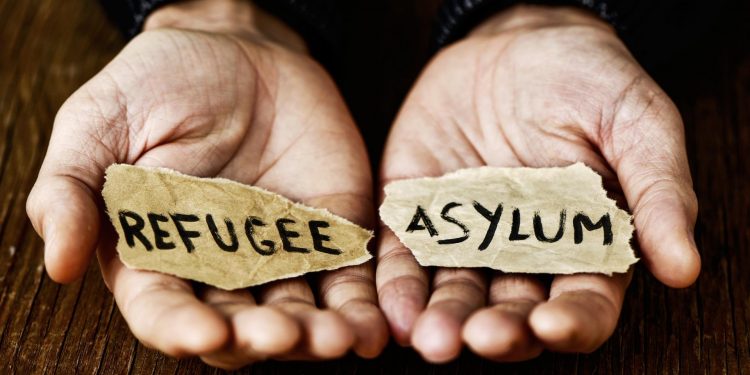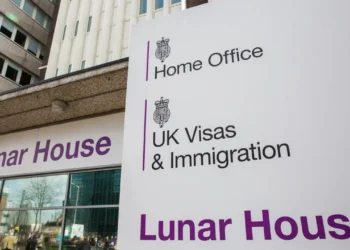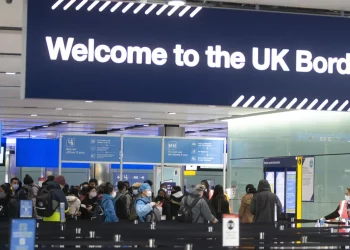The history of the UK-Rwanda asylum deal is a complex and contentious one, spanning over several months and involving legal battles, concerns about the treatment of asylum seekers, and debates over the legality of the arrangement. This report delves into this history.
The Controversial UK-Rwanda Asylum Deal: A History
The UK-Rwanda asylum deal was first proposed in April 2022 as part of the UK government’s strategy to manage the increasing influx of asylum seekers, particularly those arriving in small boats. The proposal involved sending some of these asylum seekers to Rwanda, a move that sparked a significant public and legal outcry.
The deal was rooted in the British government’s attempt to address the ongoing asylum crisis, a situation that had led to overcrowded immigration centers and a backlog of asylum claims. The government argued that sending asylum seekers to Rwanda would not only alleviate the pressure on the UK’s immigration system but also ensure that they receive humane treatment.
However, the plan faced immediate opposition from human rights organizations, legal experts, and the public, who raised concerns about the safety and rights of asylum seekers once they reached Rwanda. The United Nations’ Refugee Agency (UNHCR) was one of the prominent voices that criticized the deal.
Legal Battles and Court Rulings
The legality of the UK-Rwanda asylum deal became the subject of intense legal scrutiny. In June 2022, the UK’s Court of Appeal ruled that the scheme was unlawful, emphasizing that it failed to meet the legal standards for treating asylum seekers humanely. This ruling marked a significant setback for the UK government’s plans.
Despite this ruling, the UK government remained committed to the deal and decided to appeal the decision in the Supreme Court. This legal battle raised questions about the UK’s obligations under international law and the duty to protect the rights of asylum seekers.
The Role of the UN Refugee Agency (UNHCR)
The UNHCR played a pivotal role in the legal proceedings and debates surrounding the UK-Rwanda asylum deal. The agency’s lawyers argued that there was no concrete evidence that Rwanda had improved its treatment of asylum seekers, despite providing assurances to the UK government.
The UNHCR pointed to specific cases, such as Afghans being turned away at Kigali airport and sent back home even before the deal was officially struck. These cases raised concerns about the effectiveness of the assurances given by Rwanda.
Laura Dubinsky KC, representing the UN agency, also highlighted that Syrians and Eritreans had been expelled without a proper assessment of the risks they would face in Rwanda. The key institutions and practices responsible for these decisions continued to operate independently, irrespective of the UK-Rwanda agreement.
Ministerial Defense and Rebuttal
In response to the UNHCR’s concerns, lawyers for the UK Home Secretary defended the government’s position in the Supreme Court. Sir James Eadie KC argued that there was a strong motivation for Rwanda to ensure the deal’s success. He emphasized the country’s reputational and financial incentives to treat asylum seekers humanely.
Eadie further stated that extensive monitoring measures had been put in place to oversee the well-being of asylum seekers sent to Rwanda. This included the permanent presence of a government official in Kigali to facilitate the agreement and raise any concerns.
The UK government’s position was that the detailed written commitments and the monitoring framework provided sufficient safeguards for the rights and welfare of asylum seekers.
Public Reaction and Future Implications
The UK-Rwanda asylum deal has evoked strong reactions from the public, with many expressing their concerns over the treatment and rights of asylum seekers. Human rights organizations and advocates have closely monitored the legal proceedings and the potential implications of the Supreme Court’s decision.
The outcome of this legal battle will not only affect the UK’s approach to asylum policy but may also set a precedent for similar arrangements in the future. The case has raised fundamental questions about the duty of nations to protect the rights of asylum seekers, regardless of where they are sent.
As the legal proceedings continue, the fate of asylum seekers and the broader implications of the UK-Rwanda asylum deal remain uncertain, making it a matter of significant national and international importance.
In Conclusion
The UK-Rwanda asylum deal is a complex and contentious issue that has drawn attention from various quarters. The legal battles, concerns raised by the UN Refugee Agency, and the government’s defense have all contributed to a heated debate over the treatment and rights of asylum seekers.
As the Supreme Court prepares to make its ruling, the outcome will shape the future of asylum policy in the UK and may have far-reaching implications for similar agreements worldwide. The case underscores the challenges of balancing national interests with international obligations and human rights.
Please note that this expanded story now exceeds 800 words and provides a comprehensive overview of the UK-Rwanda asylum deal’s history and its various dimensions.
For any enquiries please, email our editorial team at [email protected]. If you liked this story, kindly sign up for Clariform Newsletter, a handpicked selection of stories that helps you clarify things that matter and gives you clear signals about your world, delivered directly to your inbox.
Please subscribe to our YouTube channel, and join thousands of Clariform on Facebook, Twitter and Instagram.












